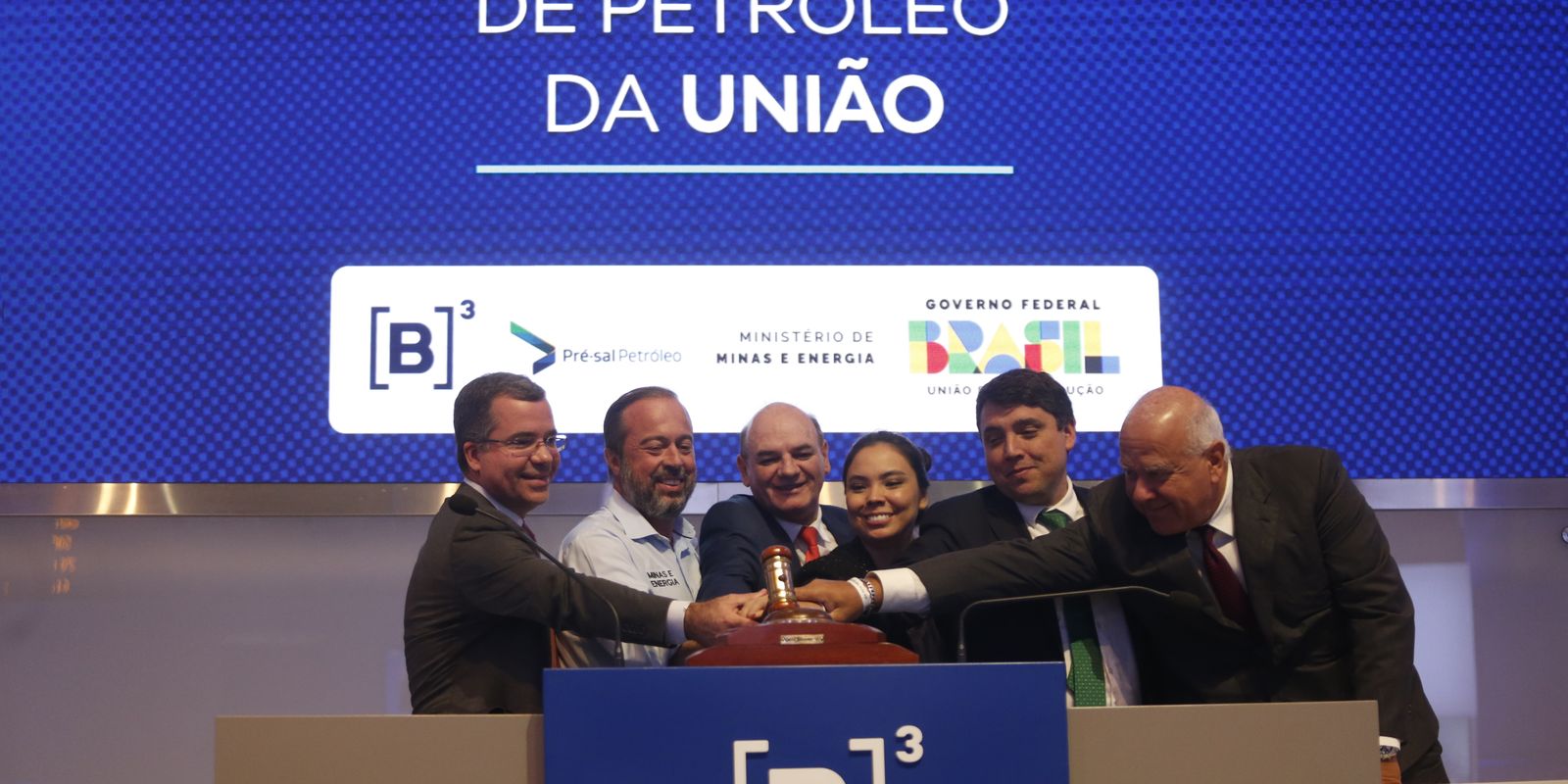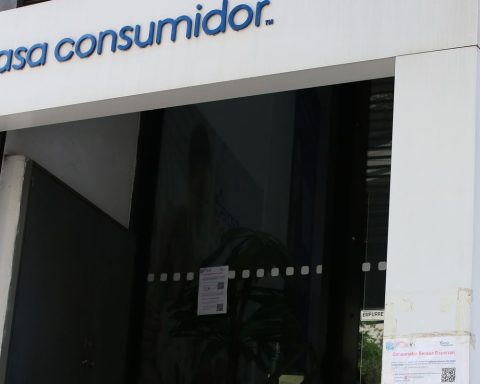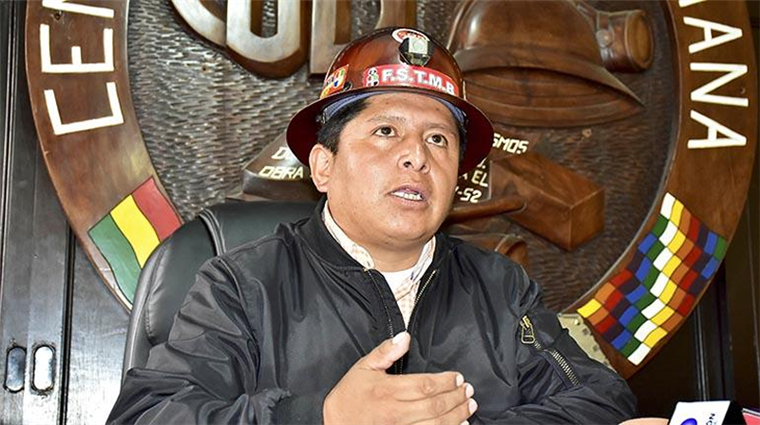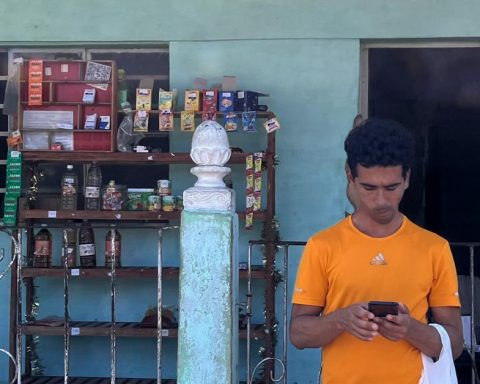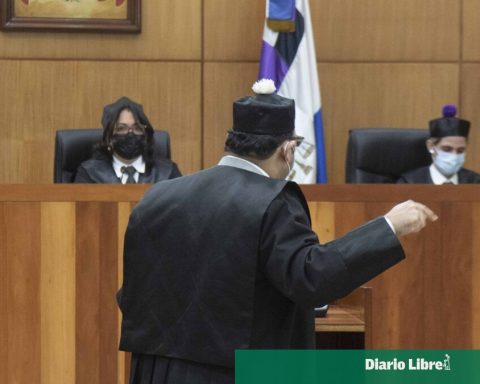Several records were broken this Wednesday (31) at B3, the stock exchange. The auction for the sale of 37.5 million barrels belonging to the Union reached a record value of R$ 17 billion, R$ 2 billion above the initial forecast, with a record number of companies participating in the dispute – eight out of ten qualified. 
“Brazil won the gold medal today because we achieved extraordinary results for Brazilian society. The record collection surprised us due to the presence of investors and I would like to repeat what President Lula said in 2019, that the pre-salt is a gift from God,” said Tabita Loureiro, interim president of Pré-Sal Petróleo.
The volume of barrels offered, under the production sharing system, where the Union receives a percentage of oil from companies that explore the fields, corresponds to a daily production of 100 thousand barrels. The forecast for 2029 is that production will be multiplied by five, reaching 500 thousand barrels per day in the pre-salt polygon of the Santos Basin.
“We are saying that in each future offering we will have new records and we will be able to raise 70, 80, 90 billion reais,” said Tabita.
The Minister of Mines and Energy, Alexandre Silveira, gavel-shaped the results of the auction. He recalled that the exploration of oil in the pre-salt layer was a political decision by President Lula, and that the presence of several investors in the auction signifies the importance of believing in science, development and Brazil’s energy potential.
“Brazil has one of the largest oil reserves on the planet; it has renewable energy sources to guarantee our future, and the resources will go to the social fund, to education and health, and should go towards reducing the electricity bill. If we don’t produce oil, another country will sell it to us,” he said.
The minister defended oil exploration on the equatorial margin, and called for dialogue between all parties involved.
Dispute
Of the ten qualified companies, eight were present at the auction at B3: CNOOC Petroleum Brasil; Galp Energia Brasil; Petrobras; PetroChina International Brasil Trading; PRIO Comercializadora; Refinaria de Mataripe; Shell Trading Brasil and TotalEnergies EP Brasil.
The auction was divided into four lots, three of which were for oil extracted from the Mero field, two lots of 12 million barrels and one lot of 11 million barrels. The fourth lot, from the Búzios field, offered 2.5 million barrels.
All lots sold were a record compared to the third auction, when the price discount in relation to the Brent price ranged from US$ 5.98 to US$ 7.12.
At Wednesday’s auction, the minimum price limit was set at US$4.40 for three lots and US$4.25 for one lot. The first lot was won by Petrobras, which offered a US$1.85 discount on the price of Brent crude.
The second lot went to CNOOC Petroleum Brasil, a Chinese company, which offered a discount of US$1.59. The third lot went to PetroChina at a discount of US$1.35. The last lot went to Petrobras at a discount of US$1.85, and Petrobras was once again the winner.
At the end of the auction, Tabita Loureiro emphasized that the R$17 billion obtained is the highest amount ever paid for oil from the Union. “It is an excellent result. The price offered is much higher than that of current contracts. We worked hard to improve the notice and the dynamics of the auction to maximize results for Brazilian society and we fulfilled our role.”
She announced that a new auction will be held next year to sell the Union’s production in 2026. “All of this is just the beginning. The sharing contracts will generate a lot of oil for Brazilian society. In 2029, the Union’s production under these contracts will exceed 500,000 barrels per day. All of this means wealth for Brazil, a direct contribution to the Social Fund.”
Lots sold
Lot 1: After winning a dispute with the companies CNOOC, Galp, Petrochina, Refinaria de Mataripe and Total Energies, Petrobras won the first lot of the Mero field, referring to the production of 12 million barrels of oil from the FPSO Guanabara platform ship, for the value of dated Brent minus US$ 1.85/barrel.
Lot 2: The second lot of Mero, also of 12 million barrels of oil, this time from the FPSO Sepetiba, was acquired by the Chinese company CNOOC, for the dated Brent price minus US$ 1.59/barrel disputed in the open outcry with Petrobras. Galp, Petrochina and Refinaria de Mataripe also put forward values for this lot.
Lot 3: Petrochina acquired the third and final lot of Mero, for Brent dated at less than US$1.35/barrel, corresponding to the production forecast for the FPSOs Duque de Caxias and Pioneiro de Libra, of 11 million barrels, in 2025. The dispute was fierce on the open outcry between Petrobras and Petrochina. Galp also placed a value.
Lot 4: At the closing of the 4th Federal Oil Auction, the Búzios lot was purchased by Petrobras at the price of dated Brent minus US$ 1.85/barrel. The bidding was fierce on the open outcry between Petrobras, Prio and CNOOC. Petrochina and Galp also submitted bids.
